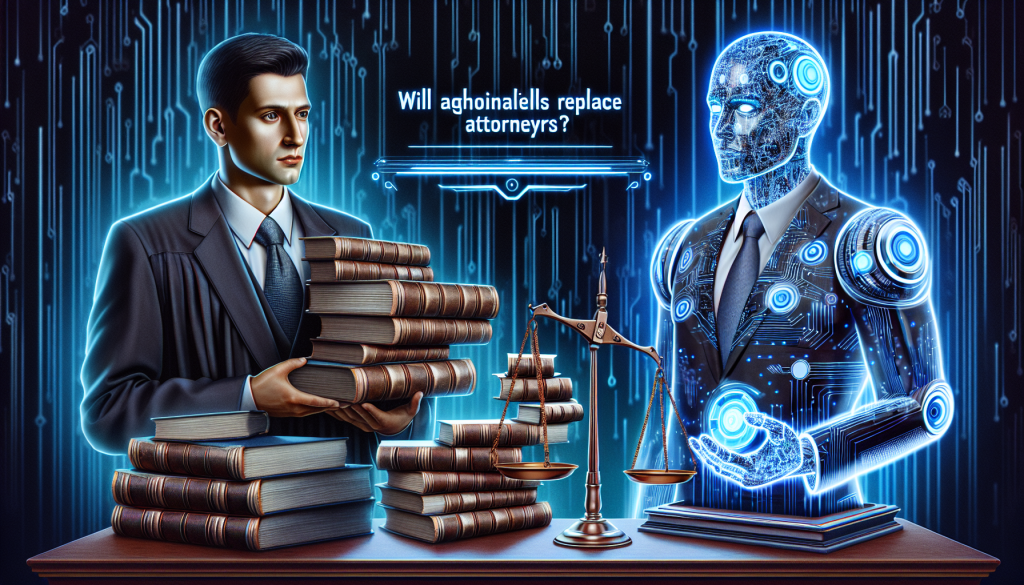
The AI Lawyer: Will Algorithms Replace Attorneys?
The AI Lawyer: Will Algorithms Replace Attorneys?
In recent years, artificial intelligence (AI) has made significant advancements in various industries, from healthcare to finance. And now, it is even making its way into the legal world. With the rise of AI technology, the concept of an AI lawyer has emerged, creating a buzz in the legal community. But the question remains: Will algorithms really replace attorneys? Let’s dive into the world of AI lawyers and explore the potential impact they could have on the legal profession.
What is an AI Lawyer?
An AI lawyer, also known as Robo-lawyer, is a computer program that uses artificial intelligence to perform legal tasks. These tasks can include legal research, drafting contracts, and analyzing documents. These programs are designed to mimic the decision-making processes of human lawyers by using algorithms and machine learning techniques. As a result, AI lawyers can process vast amounts of data and provide legal advice, just like a human lawyer would.
Pros of Having an AI Lawyer
Despite the initial skepticism surrounding AI lawyers, there are some potential benefits to consider:
- Efficiency: AI lawyers can handle repetitive tasks, such as contract drafting and review, at a much faster pace than human lawyers. This allows attorneys to focus on more complex and strategic tasks, ultimately increasing overall productivity.
- Cost-Effective: Hiring an AI lawyer can be cost-effective for individuals and small businesses who cannot afford to hire a team of human lawyers. It also eliminates the need for additional resources, such as office space and benefits.
- Accuracy: Unlike humans, AI lawyers do not get tired or make mistakes due to fatigue. This can lead to more accurate and consistent results in legal work.
Challenges to Overcome
While the potential advantages of AI lawyers are compelling, there are also some significant challenges that need to be addressed:
- Lack of Emotional Intelligence: AI lawyers do not have the ability to understand human emotions, which can be critical in certain legal cases. For instance, in a criminal trial, a human lawyer would be able to connect with the jury on an emotional level, something that an AI lawyer cannot do.
- Privacy and Security Concerns: AI lawyers work with sensitive legal information, and there are concerns about the security and privacy of this data. The potential for hacking or data breaches is a major concern that needs to be addressed before fully relying on AI lawyers.
- Human Judgment: While AI lawyers can provide legal advice based on algorithms and data analysis, they lack the judgment and critical thinking skills of human lawyers. Legal cases often require a combination of expertise, emotions, and intuition, something that may be lacking in AI lawyers.
The Future of AI Lawyers
The use of AI in the legal profession continues to evolve, and its capabilities are improving every day. However, it is unlikely that AI will replace human lawyers entirely. Instead, AI lawyers will act as valuable tools for attorneys, allowing them to handle more complex legal matters efficiently. Additionally, AI lawyers may also play a significant role in providing access to justice for individuals who cannot afford legal services.
The bottom line is that AI is here to stay in the legal world, and it is up to human lawyers to embrace and adapt to this new technology. By leveraging the benefits of AI and combining it with the expertise and emotional intelligence of human lawyers, the legal profession can continue to evolve and provide better services to clients.
Conclusion
While the idea of an AI lawyer may seem futuristic and intimidating, the reality is that it is already making an impact in the legal industry. Undoubtedly, there are many advantages that AI lawyers can offer, but there are also concerns that need to be addressed. In the end, it is crucial to remember that AI is a tool, and human lawyers will continue to play a vital role in the legal system for years to come.
